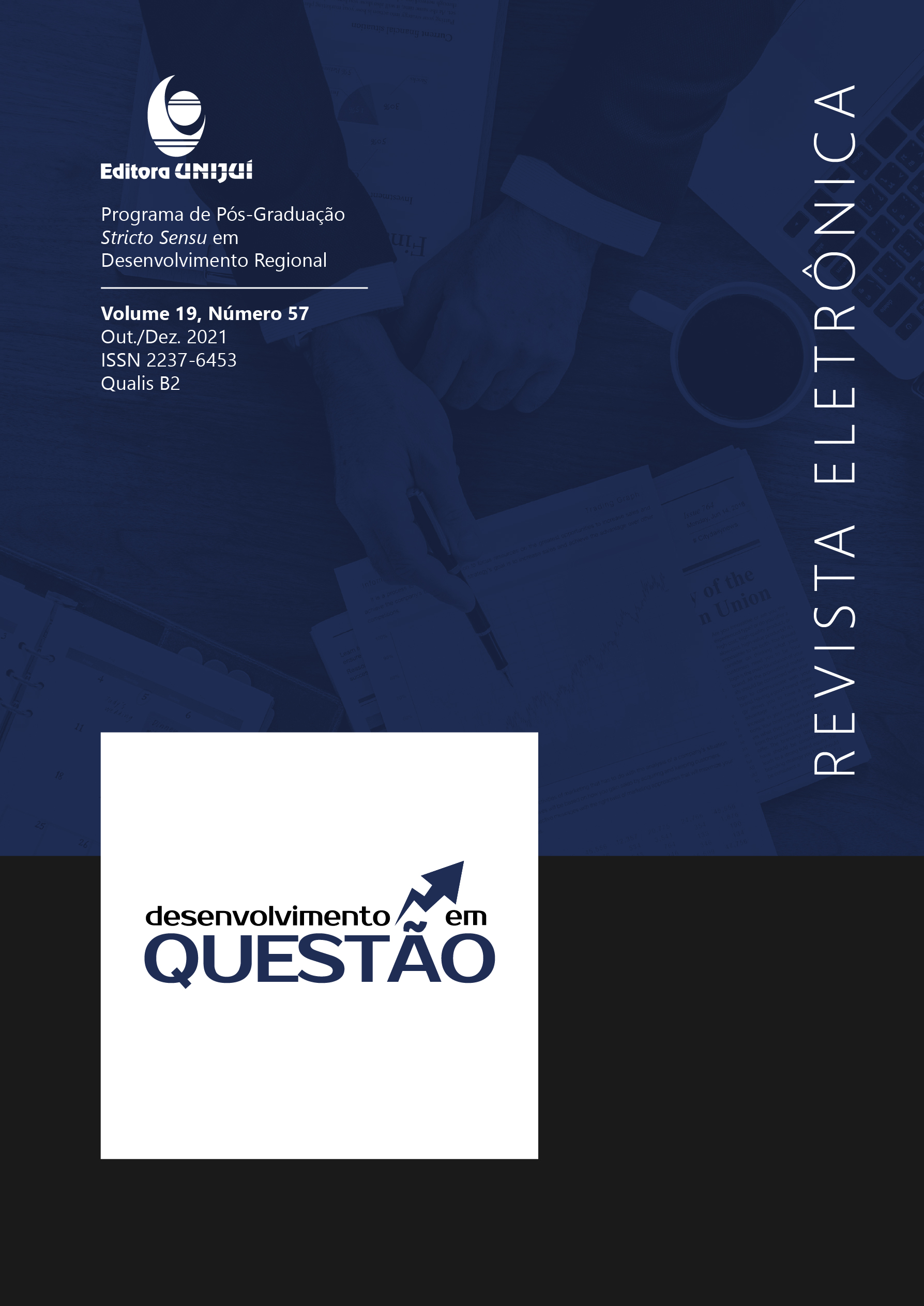Integração Regional por meio da Interconexão Elétrica: O Caso Brasil – Uruguai e as Perspectivas de Desenvolvimento para a Região de Fronteira
REGIONAL INTEGRATION TROUGH ELECTRICAL INTERCONNECTION: THE BRAZIL – URUGUAY CASE AND THE DEVELOPMENT PROSPECTS FOR THE BORDER REGION
DOI:
https://doi.org/10.21527/2237-6453.2021.57.12258Keywords:
Integração Regional, Interconexão energética, Fronteira Brasil Uruguai, Exploração CarboníferaAbstract
This article aims to analyze the regional integration process from the perspective of energy interconnection between countries, taking as an example the electrical interconnection between Brazil and Uruguay, which currently occurs through cross-border transmission lines between the municipalities of Santana do Livramento (RS) / Rivera (UR) and Candiota (RS) / Melo (UR). In addition, it seeks to analyze possible repercussions of the last interconnection in coal mining for the generation of electric energy in the Campanha (RS) region. The research was qualitative, with documentary analysis of secondary sources and partial balance of the literature on the subject. The results point to the importance of interconnections to ensure sufficient supply of electricity in critical periods, as well as indicating the importance of the role of coal-fired thermal plants for the generation of firm energy, correcting the effects of water or wind seasonality and ensuring security to the Brazilian and Uruguayan systems.
Downloads
Published
How to Cite
Issue
Section
License
By publishing in Revista Desenvolvimento em Questão, authors agree to the following terms:
All works are published under the Creative Commons Attribution 4.0 International License (CC BY 4.0), which allows:
Sharing — to copy and redistribute the material in any medium or format;
Adaptation — to remix, transform, and build upon the material for any purpose, even commercially.
These permissions are irrevocable, provided that the following terms are respected:
Attribution — authors must be properly credited, a link to the license must be provided, and any changes made must be indicated.
No additional restrictions — no legal or technological measures may be applied that legally restrict others from doing anything the license permits.
Notices:
The license does not apply to elements that are in the public domain or covered by legal exceptions.
The license does not grant all necessary rights for specific uses (e.g., image rights, privacy, or moral rights).
The journal is not responsible for the opinions expressed in the articles, which are the sole responsibility of the authors. The Editor, with the support of the Editorial Board, reserves the right to suggest or request modifications when necessary.
Only original scientific articles presenting research results of interest that have not been previously published or simultaneously submitted to another journal with the same purpose will be accepted.
Mentions of trademarks or specific products are intended solely for identification purposes and do not imply any promotional relationship by the authors or the journal.
License Agreement (for articles published from 2025 onward): Authors retain the copyright to their article and grant Revista Desenvolvimento em Questão the right of first publication.











